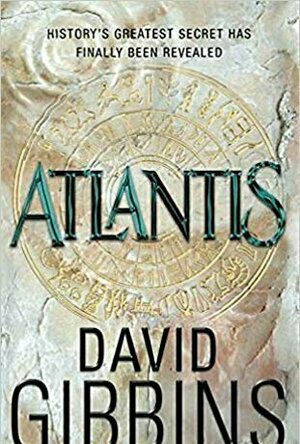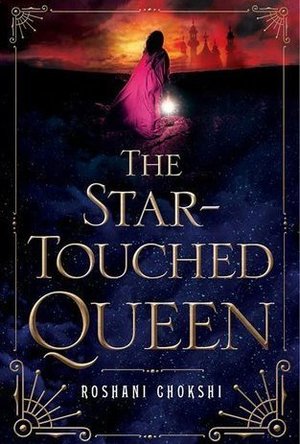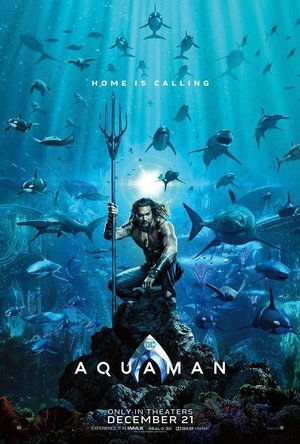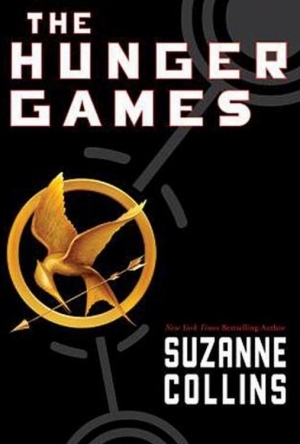Search
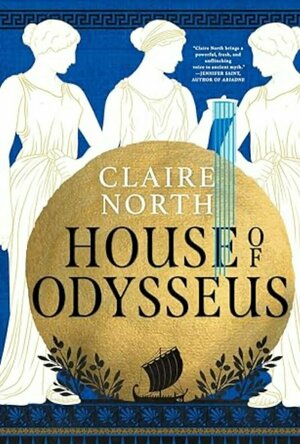
The House of Odysseus
Book
From the author of the critically acclaimed Ithaca - A Sunday Times Historical Fiction Book of the...
Historical fiction Greek mythology
Rachel King (13 KP) rated A Short History of Myth in Books
Feb 11, 2019
For such a short book, I developed quite a strong opinion about the text while reading it. I have been curious about Armstrong's writings for a long time, but this is the first attempt I have made at actually reading anything by her. I have always been a fan of ancient mythology, such as Greek and Egyptian, so this seemed like an easy choice.
In seven chapters, Armstrong takes a simplified stroll through history, focusing on the concept of myth and its impact on civilization. All throughout the book, she attempts to support her claim that a person can believe in myths without believing that the myths are actually true, and that the failure of modern society is by not following her specific edict. While this notion strikes me as absurd, I keep reading because, hey, it's a short book.
While I know only bits and pieces about many of the world's religions, I do know both the history and the holy book of my religion, Christianity. It becomes apparent to me early in the text that she is masking her opinions and interpretations of this religion as actual fact, so I can only imagine how she misconstrues other religions.
Her citations were lacking to me, with many claims going unsupported, others only partially supported, such as citation #84 and #30, and some citations simply not even applying to the specified text, such as citation #87. In citation #55, she claims that the Bible contains a Creation myth in which God brings the world into being by killing a sea monster, but one of the four verses she cites make no reference to anything of the sort (Job 3:12), and the other three (Isaiah 27:1, Job 26:13, Psalm 74:14) that do mention a leviathan cannot be interpreted that way when read in context. Isaiah is describing the end of days, while Job merely says that God created the serpent, and the verse in Psalm is within the context of a song about God rescuing the Hebrews from Egyptian slavery -- no relevancy to Creation. She makes the claim that Paul "was not much interested in Jesus's teachings, which he rarely quotes, or in the events of his earthly life." This claim is easily disproved by examining how Paul's words line up with Jesus's in John 5:21 vs. 1 Corinthians 15:22, Matthew 6:25 vs. Philippians 4:6, and many other passages.
While going through the citations, I got the feeling that the author depended on secondary sources for her information without actually studying the original source of her information. The book struck me as highly opinionated, vague, and too general for the topic being addressed. I have no doubt that there are better and more thorough books available on the topic of myth. I do not believe that I will be reading any more of Armstrong's works in the future.
In seven chapters, Armstrong takes a simplified stroll through history, focusing on the concept of myth and its impact on civilization. All throughout the book, she attempts to support her claim that a person can believe in myths without believing that the myths are actually true, and that the failure of modern society is by not following her specific edict. While this notion strikes me as absurd, I keep reading because, hey, it's a short book.
While I know only bits and pieces about many of the world's religions, I do know both the history and the holy book of my religion, Christianity. It becomes apparent to me early in the text that she is masking her opinions and interpretations of this religion as actual fact, so I can only imagine how she misconstrues other religions.
Her citations were lacking to me, with many claims going unsupported, others only partially supported, such as citation #84 and #30, and some citations simply not even applying to the specified text, such as citation #87. In citation #55, she claims that the Bible contains a Creation myth in which God brings the world into being by killing a sea monster, but one of the four verses she cites make no reference to anything of the sort (Job 3:12), and the other three (Isaiah 27:1, Job 26:13, Psalm 74:14) that do mention a leviathan cannot be interpreted that way when read in context. Isaiah is describing the end of days, while Job merely says that God created the serpent, and the verse in Psalm is within the context of a song about God rescuing the Hebrews from Egyptian slavery -- no relevancy to Creation. She makes the claim that Paul "was not much interested in Jesus's teachings, which he rarely quotes, or in the events of his earthly life." This claim is easily disproved by examining how Paul's words line up with Jesus's in John 5:21 vs. 1 Corinthians 15:22, Matthew 6:25 vs. Philippians 4:6, and many other passages.
While going through the citations, I got the feeling that the author depended on secondary sources for her information without actually studying the original source of her information. The book struck me as highly opinionated, vague, and too general for the topic being addressed. I have no doubt that there are better and more thorough books available on the topic of myth. I do not believe that I will be reading any more of Armstrong's works in the future.
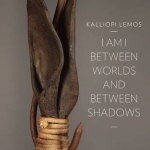
I am I Between Worlds and Between Shadows
Book
During the last decade, the work of Greek-born artist Kalliopi Lemos exposed the wounding of human...
Phil Leader (619 KP) rated Atlantis (Jack Howard, #1) in Books
Nov 8, 2019
Books where Atlantis is assumed to have been fact are nothing new, and quite a few adventure thrillers use it as the springboard for their plots. This is hardly suprising as it is a widely known myth and a handy way of drawing the reader in.
This book takes a slightly different approach, at least initially. His archaologist hero Jack Howard finds out about an ancient text that sheds more light on the story of the sunken civilization. Gibbins then does a good job of deconstructing the myths using real evidence of Egyptian, Minoan and Greek archaeology and rebuilding into a hypothesis which leads Howard on a quest to discover the source of the myth. I really enjoyed this part of the book, the author's knowledge in this area shows in some deft explanations.
However once on the trail of Atlantis a villainous adversary appears and this is the point where the book struggles as it tries to marry an interesting and plausible story of historical investigation and a thriller. Unfortunately I didn't think this worked as the book couldn't work out what it was anymore and the change between styles was very uneaven. There is a particular segment where the heroes are being pursued into the inner sanctum of Atlantis with all haste - and then spend a long time investigating the wonders of the frescos and artefacts they find within.
To my mind Gibbins is a good writer when what he is writing about is the archaeology and historical references. This novel didn't need the added threat of the villain and it just cheapened the deal. It's not exactly a bad book, just a bit confused about its identity. Howard himself is also a confused character, being essentially a charismatic history buff he has no problem being a hard-nosed killer and also seems to shrug off potential danger to his friends and colleagues without a thought.
I read The Tiger Warrior a little while ago and enjoyed that more simply because that book concentrated on the history and the archaeology with the threats being realistic and relevant to the plot.
The unevenness in this work can perhaps be forgiven as a first novel. As the Tiger Warrior showed Gibbins does have the potential for a good book if the ingredients are right. Unfortunately this isn't it.
This book takes a slightly different approach, at least initially. His archaologist hero Jack Howard finds out about an ancient text that sheds more light on the story of the sunken civilization. Gibbins then does a good job of deconstructing the myths using real evidence of Egyptian, Minoan and Greek archaeology and rebuilding into a hypothesis which leads Howard on a quest to discover the source of the myth. I really enjoyed this part of the book, the author's knowledge in this area shows in some deft explanations.
However once on the trail of Atlantis a villainous adversary appears and this is the point where the book struggles as it tries to marry an interesting and plausible story of historical investigation and a thriller. Unfortunately I didn't think this worked as the book couldn't work out what it was anymore and the change between styles was very uneaven. There is a particular segment where the heroes are being pursued into the inner sanctum of Atlantis with all haste - and then spend a long time investigating the wonders of the frescos and artefacts they find within.
To my mind Gibbins is a good writer when what he is writing about is the archaeology and historical references. This novel didn't need the added threat of the villain and it just cheapened the deal. It's not exactly a bad book, just a bit confused about its identity. Howard himself is also a confused character, being essentially a charismatic history buff he has no problem being a hard-nosed killer and also seems to shrug off potential danger to his friends and colleagues without a thought.
I read The Tiger Warrior a little while ago and enjoyed that more simply because that book concentrated on the history and the archaeology with the threats being realistic and relevant to the plot.
The unevenness in this work can perhaps be forgiven as a first novel. As the Tiger Warrior showed Gibbins does have the potential for a good book if the ingredients are right. Unfortunately this isn't it.
Kristy H (1252 KP) rated This Poison Heart in Books
Jul 8, 2021
Wonderful and captivating YA fantasy
Briseis knows she has a rare gift--with just a touch, she can grow plants. But this gift also attracts attention. So when she inherits an estate in rural New York from a relative, Briseis and her moms see this as a chance to get away and perhaps learn to control her power. Upon arriving at her new home, Briseis finds it to be beautiful--and mysterious. The property is filled with secret gardens and the house itself with notes and clues about her family's past. Then the local townsfolk start showing up at Briseis' doorstep, and she realizes the house once served as an apothecary. Briseis has an uncanny knack for whipping up the healing potions everyone desires, but the more she investigates, she realizes there is a darker side to the house and its powers. One that could have dangerous consequences for Briseis and her entire family.
"I was pretty sure that growing a poisonous bush in the park wasn't what they had in mind for how I should spend my summer."
This was a completely awesome book! The story is totally engrossing. There are poisonous plants, secret gardens, Greek mythology, and a gothic vibe--what's not to love? Briseis is an amazing character. She's strong, brave, and tough; she's also bisexual and loved unconditionally by her two moms, Mom and Mo. The book offers such a great family dynamic, with an excellent attitude toward adoption. It's no big deal that Bri is bi or that she has two Moms--it's just a fact of life. How I appreciate that in a YA book.
"'Did I--did I inherit the Addams Family Mansion?'"
I've read several books lately with Greek mythology and didn't care for them, but this one broke the mold. The stories are woven in perfectly and add to the plot flawlessly. The story is completely captivating and I loved all the strong women in it. It's also part mystery, part myth, which adds to the page-turning aspect. (Be forewarned, this is book #1, so this ends on a bit of a cliffhanger.)
Overall, cannot recommend this book enough. It's a unique and mesmerizing fantasy. The fact that it's so queer inclusive is lovely. I'll be impatiently waiting for book #2. 4.5 stars.
"I was pretty sure that growing a poisonous bush in the park wasn't what they had in mind for how I should spend my summer."
This was a completely awesome book! The story is totally engrossing. There are poisonous plants, secret gardens, Greek mythology, and a gothic vibe--what's not to love? Briseis is an amazing character. She's strong, brave, and tough; she's also bisexual and loved unconditionally by her two moms, Mom and Mo. The book offers such a great family dynamic, with an excellent attitude toward adoption. It's no big deal that Bri is bi or that she has two Moms--it's just a fact of life. How I appreciate that in a YA book.
"'Did I--did I inherit the Addams Family Mansion?'"
I've read several books lately with Greek mythology and didn't care for them, but this one broke the mold. The stories are woven in perfectly and add to the plot flawlessly. The story is completely captivating and I loved all the strong women in it. It's also part mystery, part myth, which adds to the page-turning aspect. (Be forewarned, this is book #1, so this ends on a bit of a cliffhanger.)
Overall, cannot recommend this book enough. It's a unique and mesmerizing fantasy. The fact that it's so queer inclusive is lovely. I'll be impatiently waiting for book #2. 4.5 stars.
Kyera (8 KP) rated The Star-Touched Queen (The Star-Touched Queen, #1) in Books
Feb 1, 2018
The Star-Touched Queen is a little slow to start, but once it finds a groove the story will draw you in and you won't want to put it down. The writing style is very poetic and descriptive, which is absolutely gorgeous but can sometimes slow down the story. Those pacing issues continue throughout the story. Sometimes the book flows well and you find yourself reading through chapters in no time, while other times the writing or plot trips you up and slows down the story.
I was very intrigued by the premise of the story, as not only does it include elements of Indian folklore but it is a re-telling of the Hades and Persephone myth. As a huge fan of Greek mythology, that was the aspect of the story that I was most excited to experience. Amar and Maya are our Hades and Persephone, although it is a unique story and you don't feel like you're reading a re-telling.
As strange as it seems, my favourite character was actually the demon horse Kamala. Although she could be really creepy when she salivated over eating people, she could be funny and made some of the scenes for me. Although I liked Amar, Maya and the other supporting characters I didn't relate strongly to any of them so it made me less invested in the book. I wish I did like them more because I would have loved to have stronger feelings about this gorgeous book.
Overall, I really enjoyed reading this book and would recommend it - but it didn't make any strong or lasting impact on me. Readers who are fans of flowery prose and very descriptive writing will enjoy Roshani Chokshi's writing style, but if you are a fan of more simple sentences you might have difficultly getting through this book.
I was very intrigued by the premise of the story, as not only does it include elements of Indian folklore but it is a re-telling of the Hades and Persephone myth. As a huge fan of Greek mythology, that was the aspect of the story that I was most excited to experience. Amar and Maya are our Hades and Persephone, although it is a unique story and you don't feel like you're reading a re-telling.
As strange as it seems, my favourite character was actually the demon horse Kamala. Although she could be really creepy when she salivated over eating people, she could be funny and made some of the scenes for me. Although I liked Amar, Maya and the other supporting characters I didn't relate strongly to any of them so it made me less invested in the book. I wish I did like them more because I would have loved to have stronger feelings about this gorgeous book.
Overall, I really enjoyed reading this book and would recommend it - but it didn't make any strong or lasting impact on me. Readers who are fans of flowery prose and very descriptive writing will enjoy Roshani Chokshi's writing style, but if you are a fan of more simple sentences you might have difficultly getting through this book.
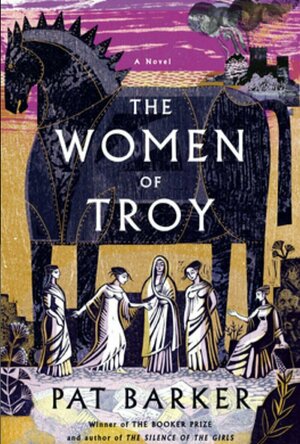
The Women of Troy
Book
Following her bestselling, critically acclaimed The Silence of the Girls, Pat Barker continues her...
Mythology Greek Mythology Folk Tales Myths and Fairy Tales
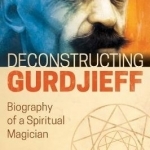
Deconstructing Gurdjieff: Biography of a Spiritual Magician
Book
In November 1949, architect Frank Lloyd Wright announced the death of "the greatest man in the...
Ryan Hill (152 KP) rated Aquaman (2018) in Movies
Jun 8, 2019
"war is coming to the surface"
Aquaman is absolutely a disciple of the superhero formula we've seen used, reused and recycled over the past couple decades...but its formula done right. There's an inherent lunacy to a hero like Aquaman; his myth is built upon a lost Atlantean culture that's simultaneously advanced technologically and heavily influenced by ancient Greek mythology, and his powers included near-Superman levels of strength and invulnerability existing alongside an ability to communicate with marine life. This makes approaching his story from a gritty, realistic perspective damn near impossible.
Instead Wan and the writers behind Aquaman intelligently focus on world-building and following the tried-and-true "heroic journey"; complete with initial rejection of a prophesied role, slow but steady immersion into said role's culture, recognition of the need for growth and change, and eventual assumption of role. It's been seen before and it'll be seen again. But what propels Aquaman ahead of other films like it is the energy that Wan imbues it with. It's goofy without undermining the sincerity of Arthur's journey. It's fast-paced and simple-minded without sacrificing the weight and universality of this particular hero's myth. It's loud and colorful and *full* of CGI everything without reducing itself to an over-commercialized, artless heap of nothingness.
It's a big-ass blockbuster with personality. Momoa has charisma to spare; he owns the physicality and irreverence of this new imagining of the king of the ocean perfectly. Amber Heard is sexy and badass as Mera; something of a victim of a forced romance but also a compelling and strong protagonist in her own right. Patrick Wilson as Oceanmaster (call me....Oceanmaster) is given enough screen-time to develop that he's more than a punching bag for Aquaman; but actually a character with ambitions and a defined, fleshed-out purpose. The origin segment is tightly done and more than enough to set the stage for what is to come. And probably the strongest aspect of this picture, the costuming and world-building, is off the charts. Similar to the enduring fantasy films that precede this (LOTR, Star Wars, Avatar for a few examples) the undersea kingdoms are a place I want to return to. They aren't just my world dressed up with CGI and the occasional costuming flourish; they're entirely foreign and endlessly inventive. Probably a solid third of the film is simply Aquaman, and the audience, being told about this world and shown it by Mera. While that may not be artistically prestigious strategy for engaging audiences, it entertains and fascinates on a "turn off your brain and look at those pretty colors" sort of way. There's a simple glee in seeing sharks ridden like horses or an octopus pounding a war-time set of drums.
I always offer the disclaimer when writing about nerdy films that I love which is this: I am a nerd. While I wasn't particularly attached to Aquaman growing up; his journey, the nature of this sort of film and the cinematic universe he will be growing into are fundamentally important to me, and I like to embrace that bias rather than keep it in check with reduced ratings or "objective" analysis. Whether it be a giant, confusing and chaotic battle between underwater armies or the horrifying descent into "the trench"; you'll always find me looking up at the screen like a little kid. Or moments like Arthur meeting Mera and confronting is past, or taking upon the role of king while wielding the trident; I just love that sort of stuff. I'm a sucker for these beats and this formula; and all signs point to this continuing. So while I may like it more than most; I'd mostly like to say Aquaman still distinguishes itself as a particularly goofy, sprawling, mythic, and metal experience that deserved to be seen on the big-screen, and to be celebrated as the fantasy film it is. It's a great time, and a nice addition to the DC film franchise.
Instead Wan and the writers behind Aquaman intelligently focus on world-building and following the tried-and-true "heroic journey"; complete with initial rejection of a prophesied role, slow but steady immersion into said role's culture, recognition of the need for growth and change, and eventual assumption of role. It's been seen before and it'll be seen again. But what propels Aquaman ahead of other films like it is the energy that Wan imbues it with. It's goofy without undermining the sincerity of Arthur's journey. It's fast-paced and simple-minded without sacrificing the weight and universality of this particular hero's myth. It's loud and colorful and *full* of CGI everything without reducing itself to an over-commercialized, artless heap of nothingness.
It's a big-ass blockbuster with personality. Momoa has charisma to spare; he owns the physicality and irreverence of this new imagining of the king of the ocean perfectly. Amber Heard is sexy and badass as Mera; something of a victim of a forced romance but also a compelling and strong protagonist in her own right. Patrick Wilson as Oceanmaster (call me....Oceanmaster) is given enough screen-time to develop that he's more than a punching bag for Aquaman; but actually a character with ambitions and a defined, fleshed-out purpose. The origin segment is tightly done and more than enough to set the stage for what is to come. And probably the strongest aspect of this picture, the costuming and world-building, is off the charts. Similar to the enduring fantasy films that precede this (LOTR, Star Wars, Avatar for a few examples) the undersea kingdoms are a place I want to return to. They aren't just my world dressed up with CGI and the occasional costuming flourish; they're entirely foreign and endlessly inventive. Probably a solid third of the film is simply Aquaman, and the audience, being told about this world and shown it by Mera. While that may not be artistically prestigious strategy for engaging audiences, it entertains and fascinates on a "turn off your brain and look at those pretty colors" sort of way. There's a simple glee in seeing sharks ridden like horses or an octopus pounding a war-time set of drums.
I always offer the disclaimer when writing about nerdy films that I love which is this: I am a nerd. While I wasn't particularly attached to Aquaman growing up; his journey, the nature of this sort of film and the cinematic universe he will be growing into are fundamentally important to me, and I like to embrace that bias rather than keep it in check with reduced ratings or "objective" analysis. Whether it be a giant, confusing and chaotic battle between underwater armies or the horrifying descent into "the trench"; you'll always find me looking up at the screen like a little kid. Or moments like Arthur meeting Mera and confronting is past, or taking upon the role of king while wielding the trident; I just love that sort of stuff. I'm a sucker for these beats and this formula; and all signs point to this continuing. So while I may like it more than most; I'd mostly like to say Aquaman still distinguishes itself as a particularly goofy, sprawling, mythic, and metal experience that deserved to be seen on the big-screen, and to be celebrated as the fantasy film it is. It's a great time, and a nice addition to the DC film franchise.
The Bandersnatch (199 KP) rated The Hunger Games in Books
Nov 7, 2019
The Hunger Games is a trilogy of YA dystopian novels written by American author Suzanne Collins. The story is set in an unspecified future, in a dystopian, post-apocalyptic nation of Panem located in North America. The country consists of the Wealthy Capital surrounded by the twelve (Originally thirteen) poorer districts, each one in various states of poverty. The story follows Katniss Everdeen as she takes her sisters place in the annual Hunger Games. The games are a televised event created as punishment for a past rebellion. Over the course of the books Katniss and the rest of Panem are plunged into Civil War thanks to Katniss inadvertently fuelling a hidden rebel fraction led by President Alma Coin of (the previously thought to be destroyed) District 13. After going through hell, loosing friends and the sister she tried to protect Katniss is eventually tried for killing Coin at the execution of Ex-President Snow and sent back to District 12. Katniss eventually marries fellow tribute Peeta Mellark (whom she was tied to during the games as the pair of star-crossed lovers) and eventually have two children a boy and a girl. Author Suzanne Collins stated that the inspiration for the story came to her after channel surfing through TV channels, having seen a reality show on one channel then saw footage of the Iraq invasion. The two began to blur in an unsettling way and the idea started to form. The Greek myth of Theseus also served as a basis for the story, with Collins saying that Katniss could be called a future Theseus and The Hunger Games being an interpretation of the old gladiatorial games.
The Hunger Games the titular book was released on September 14th 2008 under the publishing house Scholastic Press. The book had an initial print run of 50,00 copies eventually being bumped up twice to 200,000 copies. By February 2010 the book had sold 800,000 copies and rights to the novel have been sold in 38 territories. In November 2008 The Hunger Games was placed on the New York Times best seller list where it would remain for 100 weeks (just over three months). By the time the books film adaption released in march 2012 the book had been on USA Today's best seller list for 135 weeks (Four months) and sold over 17.5 million copies. The book received several awards and honours such as Publishers Weekley's “Best book of the year 2008”, the New York Times “Notable children's book 2008” and was the 2009 young adult fiction category winner of the Golden Duck award. The book also received the California Young Reader medal in 2011.
Catching Fire, the second book was published on September 1st 2009 under Scholastic. As the sequel to the Hunger Games book it continues the story of Katniss Everdeen and the post-apocalyptic nation of Panem as rebellion begins. The book received mixed reviews but was placed on Time Magazines Top 100 fiction list of 2009. Catching fire had an initial print of 350,00 copies but was (Like its predecessor) had grown to 750,00 by February 2010. The book has sold over 10 million copies.
Mocking-jay the third and final book in the Hunger Games Trilogy and was published August 24th 2010 by Scholastic. The book had a 1.2 million copy print that was bumped up from 750,000 copies and in its first week sold over 450,00 copies. Reviews were favourable with the book and notes that it thoroughly explores the themes of the other books.
I really love the books and regularly read them. Whenever I do read them I tend to read all three of them in the space of a week. To be fair whilst I had heard of them before the first movie release I didn't start reading them until I'd seen the first movie. I did read Catching Fire and Mockingjay before their movie equivalents hit the screens. Whilst The Hunger Games was a brilliant opener and Mockingjay was a brilliant ender, I agree with a few reviewers that Catching fire had a delayed start and it took a bit of time to get into the action of the story at large.
Suzanne Collins was born in Hartford Connecticut on the 10th of August 1962 as the youngest fourth child to Jane Bradley Collins and Lt. Col. Michael Jon Collins a decorated U. S. Air Force officer. As a daughter of a military man she was constantly moving with her family and spent her childhood in the eastern united states. Collins went to the Alabama school of fine arts in Birmingham 1980 as a theatre arts Major. Collins went on to complete a Bachelor of arts from Indiana University in 1985 and telecommunications and in 1989 Collins earned her M. F. A. in dramatic writing from NYU Tisch school of arts. Collins began her career in 1991 as a writer for children's television shows and won a nomination in animation for co-writing the critically acclaimed Christmas special Santa, Baby!. Collins after meeting James Proimos whilst working on a children's show felt the urge to write children's books and spent the early 2000's writing five books of the Underland Chronicles; Gregor the Overlander, Gregor and the Prophecy of Bane, Gregor and the curse of the Warmbloods, Gregor and the Marks of Secret and Gregor and the Code of Claw. The influence for those books came from Alice in Wonderland. During the late 2000's she ends up writing the Hunger Games trilogy which went onto a famous movie trilogy. As the result of the hunger games trilogy popularity Collins was named one of Times Magazine's most Influential people of 2010. On June 17th 2019 Collins announced she was writing a prequel to the Hunger Games and is scheduled to be released on 19th May 2020, the book is to focus on the failed rebellion 64 years before the Hunger Games trilogy.
I highly respect the Author Suzanne Collins for both her work as a writer of Children's media and for her creativity in creating both the Hunger Games and the Underland Chronicles. Her creativity has been awarded with her books popularity and being announced amongst Time Magazine's 2010's most influential people and Amazons best selling Kindle author in 2012.
In March 2009 Lions Gate Entertainment entered into a co-production agreement with Nina Jacobson's Production company Color Force for the Hunger Games. Novel writer Suzanne Collins adapted the book in collaboration with screenwriter Billy Ray and Director Gary Ross. Actors Jennifer Lawrence, Josh Hutchinson and Liam Hemsworth were hired for the roles of Katniss, Peeta and Gale respectively. Lawrence was four years older than Katniss was in the books but Collins said she would rather the actress be older than the character since it demanded a certain maturity and power. Collins also liked Lawrence stating she was the “only one who truly captured the character I wrote in the book”. The Hunger Games Movie was released on march 23rd 2012. The Hunger Games: Catching Fire was released on November 22nd 2013 with Francis Lawrence being hired as Director and actors Phillip Seymour Hoffman, Jena Malone and Sam Claflin being hired as Plutarch Heavensbee, Johanna Mason and Finneck Odair respectively. The Hunger Games: Mockingjay was split into 2 and Part 1 was released on November 21st 2014 and part 2 on November 20th 2015 Francis Lawrence remained Director for the final movies with Actor Julianne Moore joining the cast as President Alma Coin.
I loved the movies point blank and whilst it has its flaws like most movies often do I think its redeeming quality has been it faithfulness in sticking to the books as closely as possible and the actors representation of Suzanne Collins characters such as Jennifer Lawrence as Katniss, Donald Sunderland and President Snow, Stanley Tucci as Ceaser Flickerman, Woody Harrelson as Haymich Abernathy and Elizabeth Banks as Effie Trinkett. Whilst all the actors were very good and were chosen well for their characters. These actors in particular I feel did exceptionally well in bringing their characters to life especially Elizabeth Banks, Stanley Tucci and Woody Harrelson but then I am a very big fan of theirs so I may be a little biased.
The Hunger Games the titular book was released on September 14th 2008 under the publishing house Scholastic Press. The book had an initial print run of 50,00 copies eventually being bumped up twice to 200,000 copies. By February 2010 the book had sold 800,000 copies and rights to the novel have been sold in 38 territories. In November 2008 The Hunger Games was placed on the New York Times best seller list where it would remain for 100 weeks (just over three months). By the time the books film adaption released in march 2012 the book had been on USA Today's best seller list for 135 weeks (Four months) and sold over 17.5 million copies. The book received several awards and honours such as Publishers Weekley's “Best book of the year 2008”, the New York Times “Notable children's book 2008” and was the 2009 young adult fiction category winner of the Golden Duck award. The book also received the California Young Reader medal in 2011.
Catching Fire, the second book was published on September 1st 2009 under Scholastic. As the sequel to the Hunger Games book it continues the story of Katniss Everdeen and the post-apocalyptic nation of Panem as rebellion begins. The book received mixed reviews but was placed on Time Magazines Top 100 fiction list of 2009. Catching fire had an initial print of 350,00 copies but was (Like its predecessor) had grown to 750,00 by February 2010. The book has sold over 10 million copies.
Mocking-jay the third and final book in the Hunger Games Trilogy and was published August 24th 2010 by Scholastic. The book had a 1.2 million copy print that was bumped up from 750,000 copies and in its first week sold over 450,00 copies. Reviews were favourable with the book and notes that it thoroughly explores the themes of the other books.
I really love the books and regularly read them. Whenever I do read them I tend to read all three of them in the space of a week. To be fair whilst I had heard of them before the first movie release I didn't start reading them until I'd seen the first movie. I did read Catching Fire and Mockingjay before their movie equivalents hit the screens. Whilst The Hunger Games was a brilliant opener and Mockingjay was a brilliant ender, I agree with a few reviewers that Catching fire had a delayed start and it took a bit of time to get into the action of the story at large.
Suzanne Collins was born in Hartford Connecticut on the 10th of August 1962 as the youngest fourth child to Jane Bradley Collins and Lt. Col. Michael Jon Collins a decorated U. S. Air Force officer. As a daughter of a military man she was constantly moving with her family and spent her childhood in the eastern united states. Collins went to the Alabama school of fine arts in Birmingham 1980 as a theatre arts Major. Collins went on to complete a Bachelor of arts from Indiana University in 1985 and telecommunications and in 1989 Collins earned her M. F. A. in dramatic writing from NYU Tisch school of arts. Collins began her career in 1991 as a writer for children's television shows and won a nomination in animation for co-writing the critically acclaimed Christmas special Santa, Baby!. Collins after meeting James Proimos whilst working on a children's show felt the urge to write children's books and spent the early 2000's writing five books of the Underland Chronicles; Gregor the Overlander, Gregor and the Prophecy of Bane, Gregor and the curse of the Warmbloods, Gregor and the Marks of Secret and Gregor and the Code of Claw. The influence for those books came from Alice in Wonderland. During the late 2000's she ends up writing the Hunger Games trilogy which went onto a famous movie trilogy. As the result of the hunger games trilogy popularity Collins was named one of Times Magazine's most Influential people of 2010. On June 17th 2019 Collins announced she was writing a prequel to the Hunger Games and is scheduled to be released on 19th May 2020, the book is to focus on the failed rebellion 64 years before the Hunger Games trilogy.
I highly respect the Author Suzanne Collins for both her work as a writer of Children's media and for her creativity in creating both the Hunger Games and the Underland Chronicles. Her creativity has been awarded with her books popularity and being announced amongst Time Magazine's 2010's most influential people and Amazons best selling Kindle author in 2012.
In March 2009 Lions Gate Entertainment entered into a co-production agreement with Nina Jacobson's Production company Color Force for the Hunger Games. Novel writer Suzanne Collins adapted the book in collaboration with screenwriter Billy Ray and Director Gary Ross. Actors Jennifer Lawrence, Josh Hutchinson and Liam Hemsworth were hired for the roles of Katniss, Peeta and Gale respectively. Lawrence was four years older than Katniss was in the books but Collins said she would rather the actress be older than the character since it demanded a certain maturity and power. Collins also liked Lawrence stating she was the “only one who truly captured the character I wrote in the book”. The Hunger Games Movie was released on march 23rd 2012. The Hunger Games: Catching Fire was released on November 22nd 2013 with Francis Lawrence being hired as Director and actors Phillip Seymour Hoffman, Jena Malone and Sam Claflin being hired as Plutarch Heavensbee, Johanna Mason and Finneck Odair respectively. The Hunger Games: Mockingjay was split into 2 and Part 1 was released on November 21st 2014 and part 2 on November 20th 2015 Francis Lawrence remained Director for the final movies with Actor Julianne Moore joining the cast as President Alma Coin.
I loved the movies point blank and whilst it has its flaws like most movies often do I think its redeeming quality has been it faithfulness in sticking to the books as closely as possible and the actors representation of Suzanne Collins characters such as Jennifer Lawrence as Katniss, Donald Sunderland and President Snow, Stanley Tucci as Ceaser Flickerman, Woody Harrelson as Haymich Abernathy and Elizabeth Banks as Effie Trinkett. Whilst all the actors were very good and were chosen well for their characters. These actors in particular I feel did exceptionally well in bringing their characters to life especially Elizabeth Banks, Stanley Tucci and Woody Harrelson but then I am a very big fan of theirs so I may be a little biased.

